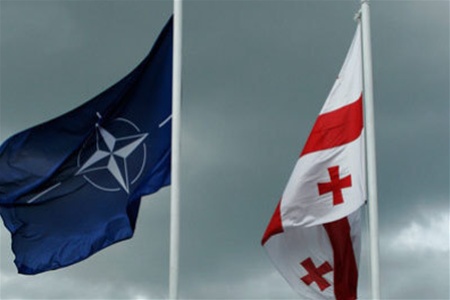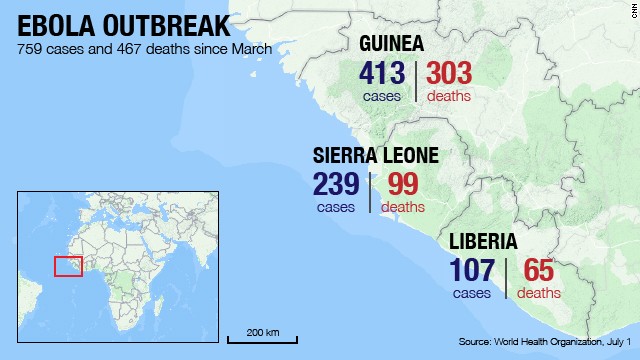In his monthly press conference on October 10th, NATO Secretary General Anders Fogh Rasmussen announced that the Caucasian country of Georgia would become a member of the NATO Response Force, the Alliance’s rapid reaction force, in 2015.
An Eager Partner
This comes after years of Georgia contributing substantially to NATO-led operations from Kosovo to Afghanistan, where it still has an impressive 1560 troops deployed as of October 2013, putting it ahead of most NATO countries. Indeed, Georgia is the largest non-NATO contributor to ISAF.
Integration into the Euro-Atlantic community, especially NATO, has been a rare topic of consensus in Georgia’s domestic political arena, uniting even the political enemies President Mikheil Saakashvili and Prime Minister Bidzina Ivanishvili. Euro-Atlantic integration is also overwhelmingly popular with Georgians.
Georgia has long sought NATO membership. It became a member of the North Atlantic Cooperation Council in 1992, Partnership for Peace in 1994, and the Euro-Atlantic Partnership Council in 1997, all steps towards closer relations with NATO. In 2002, Georgia formally declared its wish to join the Alliance. At the Bucharest Summit in 2008, Allied leaders agreed on Georgia’s eventual NATO membership, a decision that has been reinforced multiple times since then.
At the same time, Georgia’s external relations continue to be dominated by its antagonistic relationship with its northern neighbour Russia, with which it fought a short war in 2008, leading to the de-facto secession of two regions, Abkhazia and South Ossetia, from Georgia.
The question for NATO is therefore whether or not Georgia should become a member sooner rather than later, and if the country will ultimately contribute to the Alliance in a substantive way, rather than undermine it.
Pros and Cons
On the one hand, Georgia’s contributions to ISAF are a clear plus for the Alliance, where the small country is punching far above its weight, and is doing much heavy lifting without being a NATO member. Georgia has spent much blood and treasure in Afghanistan, where it has sustained heavy casualties. However, the importance of its deployment to Afghanistan is likely to dwindle as ISAF winds down post-2014.
Perhaps more importantly, Georgia sits on important energy transit routes between the Caspian Sea and Europe. These pipelines are of immense strategic importance to Europe, as they provide an alternative source of energy to Russian gas shipments. Indeed, Russia has never shied away from using its control of energy resources to coerce its neighbours, as its relationship with Ukraine and Belarus shows. For this reason, tying Georgia closer into the North Atlantic orbit makes shrewd strategic sense.
On the other hand, the state of Georgia’s foreign relations risk involving NATO in unnecessary conflicts in the Caucasus. Just recently, in September 2013, Russia warned Georgia that joining NATO would have “serious consequences” for stability in the South Caucasus. Furthermore, the Russian deputy foreign minister claimed that Georgian NATO membership would worsen the relationship between Russia and NATO comprehensively.
Georgia’s conflict with Russia over its seceded territories may be cold at the moment, but there is a genuine risk of armed hostilities resuming. It is worth asking if NATO membership would incentivize Georgia to engage in more assertive behavior towards Russia.
A Community of Values
In the end, Georgia’s NATO aspirations should not be decided simply on a cost-benefit analysis and its geopolitical importance. NATO’s door should be open to Georgia once it fulfills the Alliance’s membership requirements, and should depend especially on Georgia’s continued democratization.
Georgia made history in 2012 when it had its first-ever constitutional transfer of power from former Prime Minister Mikheil Saakashvili to Bidzina Ivanishvili, regarded by observers as an important step towards democracy in Georgia. At the same time, politics remains highly personalized, with the prime minister wielding enormous influence.
However, progress has been made in this regard as well, with parliament demonstrating its own power by passing constitutional amendments limiting presidential powers. Even in its conflict with South Ossetia and Abkhazia, some progress may be on the horizon, with Premier Ivanishvili publicly calling for direct talks with the two regions, an unprecedented step.
If Georgia is able to credibly demonstrate that it shares NATO’s liberal values of democracy, the rule of law and good governance, it should become a member. Strategic calculations should then become secondary. An expanding community encompassing ever more liberal democratic states in Eastern Europe can only be a good thing for NATO.




